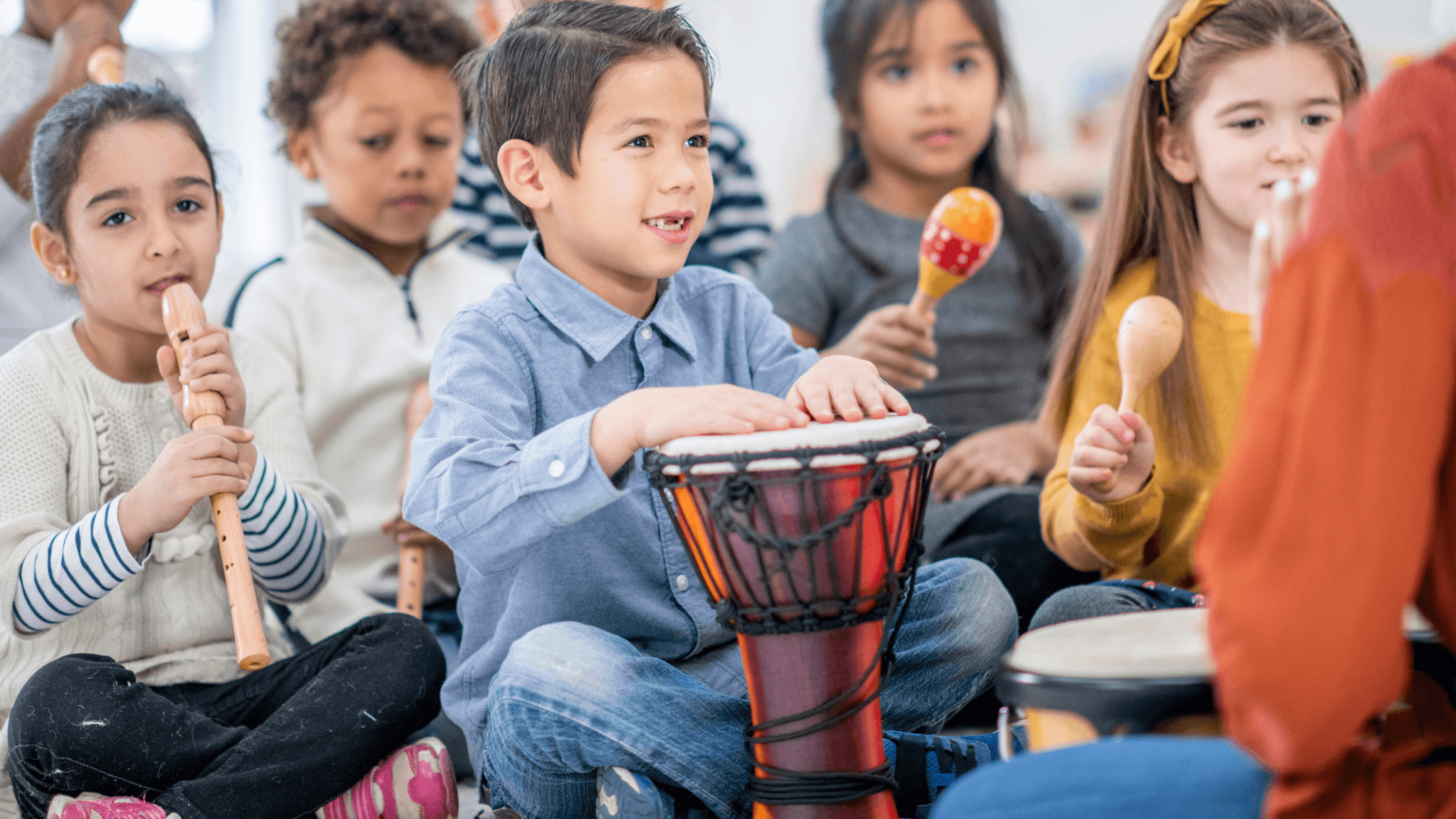Does your child like banging pots and pans, making everyday routines into songs, and singing along to the car radio? If your child is curious about music, encourage them! It may prove to be a benefit to their cognitive growth down the road. A five-year study conducted by the University of Southern California revealed that the brains of children who were taught a musical instrument had more developed auditory pathways than the brains of those who were not.
In the study, the brain development of a group of students who practiced musical instruments seven hours a week was compared with the development of two control groups of students who participated in another extracurricular activity and participated in none, respectively. The students who studied music were found to have more significantly developed auditory pathways in their brains than the control students after just two years of study.
This doesn’t just ensure that your baby Mozart will develop a sophisticated relationship with pitch, volume, and tempo, but also primes them for the development of language skills. The study concluded that “Music instruction appears to accelerate brain development in young children, particularly in the areas of the brain responsible for processing sound, language development, speech perception, and reading skills.” This means that if your little one jumps for joy at the sound of music, they may be preparing themselves for higher-level communication functions and future academic success.
A musical foundation is also crucial in developing social bonds, both with caretakers and other children. A report commissioned by Carnegie Hall found emphasizes that lullabies, for example, not only teach the language with lyrics and soothe with pitch and rhythm but create a sense of safety. There’s a reason neonatal intensive care units play music to soothe premature babies: it works. If your child is craving more interaction with music, it may be a sign that you’ve created a sense of security and comfort through music with all those nights spent rocking and humming.
Music can also help form social bonds with peers. The patterns, rules, and routines of musical games help young children learn and absorb social patterns, like taking turns, making introductions, and following directions. Musical play can especially help to model these behavioral patterns for children with social or developmental challenges.
If all that isn’t enough to convince you to enroll your child in music lessons, consider that the positive effects might extend as far as their future SAT scores! The National Association of Music Merchants published a report including statistics which suggest long-term benefits of lifelong musical education. These statistics suggest that students receiving musical education remember and apply verbally communicated information more easily. They also point to higher math and reading achievement and higher SAT scores for students with access to musical education.
But why wait for high school to start reaping the benefits of music? Enroll your child in a musical activity today using our searchable database, and see them light up immediately.
